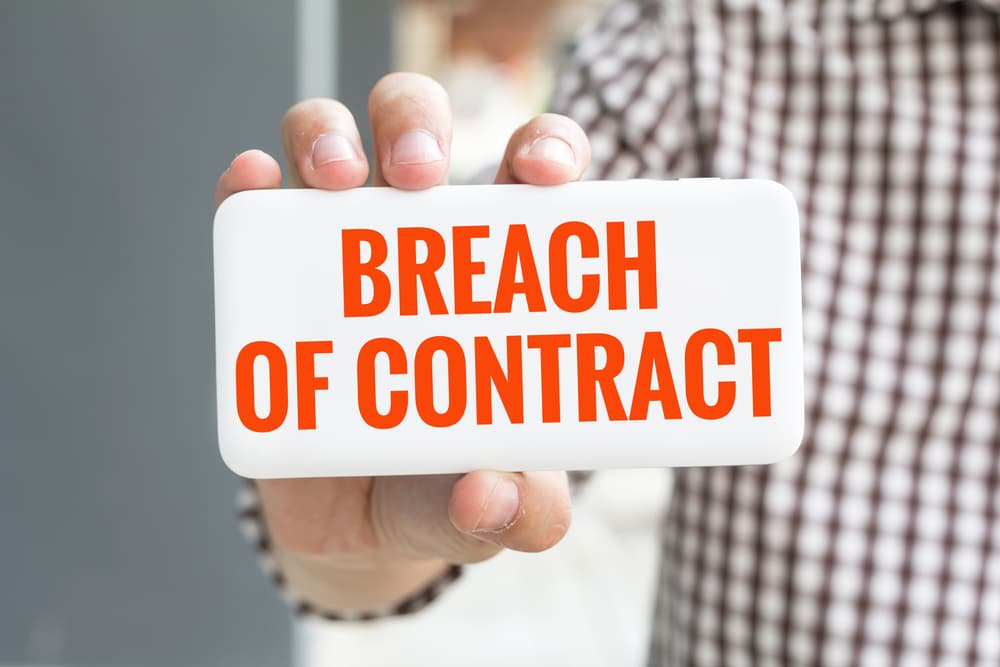Drafting, Negotiating, and Reviewing Real Estate Agreements and Contracts

Real estate transactions must be in writing. The statute of frauds dictates that there will be no such thing as an oral contract that involves real estate. Before you sign a real estate contract, it is imperative that it is drafted by someone with detailed knowledge of the agreements and who knows how to obtain the maximum amount of protection for you. If a real estate attorney does not draft the contract, they should review it before you sign it because the terms of the agreement dictate your rights and obligations. Once you sign a real estate contract, it is binding on you, and you may find yourself in litigation, with your rights to be determined by a judge.
Therefore, you should not take a DIY approach to any real estate contract, nor should you blindly sign anything that is placed in front of you. Only after getting help from a Seattle real estate attorney should you reach an agreement and sign a contract.
Contracts Are Agreements Between Two Parties Where Each Performs

To understand why it is crucial to hire a real estate attorney, you need to understand what a contract is and why it is so important. Any valid contract requires something called consideration. This term is a legal one that describes two parties, each promising to do something (or not do something). Most often, one party agrees to pay money in exchange for property or services. Then, the contract must be sufficiently defined so the terms of the agreement are readily apparent.
There will be many things that are covered in a real estate contract. This legal document provides terms that govern the relationship between you and the other party. You may have a one-time contract for a purchase of property (although you may have rights that continue even after the deal is closed). The contract can cover an ongoing relationship for a lease, where you have continuing obligations, so long as there is a legal relationship between you and the other party.
Key Parts of a Real Estate Contract
There are some key terms of a real estate contract that may include:
- The description of the property or the ownership interest that is to be sold or leased
- The financial terms of the deal, including the purchase or lease price (and the term of the lease)
- In a lease agreement, which party has the legal responsibility to pay for utilities and to make repairs to the property as necessary
- The amount of the earnest money that the buyer will need to put down as a deposit on the property
- When the seller is to be paid and in what way (for example, there can be several installments of the purchase price and dates when payment may be due)
- Whether there is an option to purchase the property at the conclusion of the lease or an option to extend the lease
- Any financing terms for the transactions and whether the seller will retain a security interest in the property
- Contingency clauses allow a buyer to exit the contract or the seller to not have to deliver the property (there may be issues that arise during an inspection or when the buyer cannot obtain financing for the transaction)
- Any warranties that the seller makes regarding the property (in addition, the seller may also be subject to common law warranties)
- The closing date of the transaction and what the owner may do with the property prior to that date
What Goes Into a Real Estate Contract Depends on Your Situation
There is no definitive list of terms that need to be in a real estate contract. Still, it needs to be sufficiently detailed to address your own situation without any ambiguity. It will be up to you and the other party to decide which terms will be in the contract and what form they may take. Real estate contracts are customizable for the specific facts of your situation, and you never want to use an “off the rack” agreement for your transaction like you might find on the internet. Then, you may end up with unintended consequences because you have signed a contract that does not specifically address your own needs.
Real estate agreements can be very technical and complex, depending on the type of transaction involved. You should hire an attorney for any type of sales or lease contract. Do not let anyone on the internet tell you that you can take a DIY approach to real estate contracts. This approach is the exact recipe for trouble and can lead to litigation that you neither wanted nor intended. You may then be reminded that you signed a contract that you do not recognize because it addresses facts that are different from your current situation, but you can still end up out of luck.
You have the freedom to negotiate the terms of the real estate transaction with the other party. Nobody can impose terms on you. If someone is trying to impose harsh terms on you, there is always the freedom to walk away from the deal. You are bound by the terms of what you sign, so you need to make sure that the contract reflects your wishes.
Never Negotiate and Draft Contracts Without the Help of a Real Estate Lawyer
You should not try to negotiate and draft contracts on your own. If there is any dispute over what the language in your contract says, a court will look at every word in the contract. The judge will even scrutinize every comma to give the actual words in the agreement some meaning. You can end up with an unintended reading of the contract you may never have wanted. However, you are bound by the language of the agreement you signed. If the contract’s language is clear, the court will not try to ask what you meant when you drafted or negotiated the contract. Instead, the judge will look at what it contained on paper in the four corners of the document. Any type of sloppy draftsmanship can cost you a significant amount of money. When you sign a contract that you neither drafted nor reviewed, you may end up facing unintended consequences.
Never Sign a Contract That a Real Estate Attorney Has Not Reviewed First
The same thing goes when you are handed a contract to sign that you did not draft. If you sign the agreement, you are bound by what is in the document. Again, it does not matter what you intended. Every word in the contract has meaning. There may be things in the contract that you do not understand. You still have to abide by the terms to which you agreed. Even though ambiguities are often construed against the party who drafted the real estate contract, you never want to be in a position of having to make this argument in court.
It always helps to have a lawyer review any agreement before you sign it. You may have some leverage to negotiate, depending on the context of the deal. Your lawyer can explain the provisions of the contract to you and suggest any changes as necessary. Then, you will negotiate with the counterparty to make any amendments that you may believe are necessary. Your real estate lawyer can act as your representative when there are any legal matters pertaining to a prospective contract. The more work a real estate attorney does upfront, the less chance you may face litigation.
Real Estate Contracts Could End Up the Subject of Litigation
To understand the criticality of a real estate lawyer, you need to know what happens when there is any type of dispute over the terms of the contract. Usually, one party will sue the other for breach of contract. Both parties may even file counterclaims against the other for breach of contract. A party may be seeking specific performance for a real estate transaction, where a court might compel a party to perform in accordance with the terms of the agreement. In other cases, one party may try to get out of the real estate contract by seeking to have a court order rescission (usually done when there is some type of fraud or misrepresentation).
Potential Damages in a Real Estate Breach of Contract Lawsuit

If there is a breach of contract lawsuit, usually, one or both parties to a contract are seeking damages from the other that can include:
- Compensatory damages that can put a party in the exact financial position that they would have been in if the other party performed in accordance with the terms of the contract
- Liquidated damages in accordance with the contract (some contracts have a term that specifies the damages that must be paid for breach of contract, although the liquidated damages cannot be grossly disproportionate to the actual financial losses)
- Punitive damages are very rare in breach of contract cases, although they are possible in some cases when one party knowingly and intentionally breached the terms of the agreement
- One or both parties may seek an injunction from the court, where the judge either orders a party to do something or refrain from taking action
The Language of the Actual Contract Would Control the Outcome of Litigation
Whether you are the breaching party being sued or the party seeking damages from the other side, you will have to go to the language of the contract to determine exactly what it said and what the requirements are. The party being sued for breach may defend against the lawsuit by saying that they did not actually breach the contract. Alternatively, they may claim that you have a different interpretation of the contract and that they did not breach the agreement.
In any real estate contract litigation, a court will use an order of hierarchy. The court will begin with the plain meaning of the contract. The court will look at the entire meaning of the contract, giving meaning to every word and term so an interpretation cannot render any of the language superfluous. A court will only look at other evidence outside the plain language of the document if there are any ambiguities.
Then, the court may examine whether an ambiguity is latent or patent. The latter type of ambiguity is extremely obvious from the face of the contract. In that case, the court would interpret the ambiguity against the party who drafted the contract. If that was you, it may mean practically an automatic loss in your case in court.
A latent ambiguity is one where there are two reasonable interpretations of the contract. There may be a legitimate disagreement about what the contract actually means. Then, the court will have to go further to determine the meaning of the contract. The court may still construe ambiguities against the draft if the non- drafter’s interpretation is reasonable.
Hire a Real Estate Lawyer Early in the Transaction Process

It is vital that you contact a skilled real estate lawyer in Seattle soon as possible when you are contemplating any potential transaction. A real estate attorney can be most effective when you hire them early, and they can be as involved as possible in your legal matters. The less you try to do on your own, the more results your real estate attorney can deliver.
When it comes to navigating the complexities of real estate agreements and contracts, having a trusted legal professional by your side is invaluable. As you embark on the journey of buying or selling property, it’s key to hire a real estate lawyer early in the transaction process.
At the very minimum, you should contact an experienced real estate lawyer to learn more about how they can help you. All it takes is a phone call to a real estate attorney to schedule an initial consultation to discuss your matter. You may choose to get the benefits and protection that a real estate lawyer provides you through their help in reviewing and drafting your contracts.



